Maintaining Boundaries and Closing the Session
These slides are available for use with this section of the presentation. For information about downloading presentation slides, see Introduction.
Maintaining Boundaries
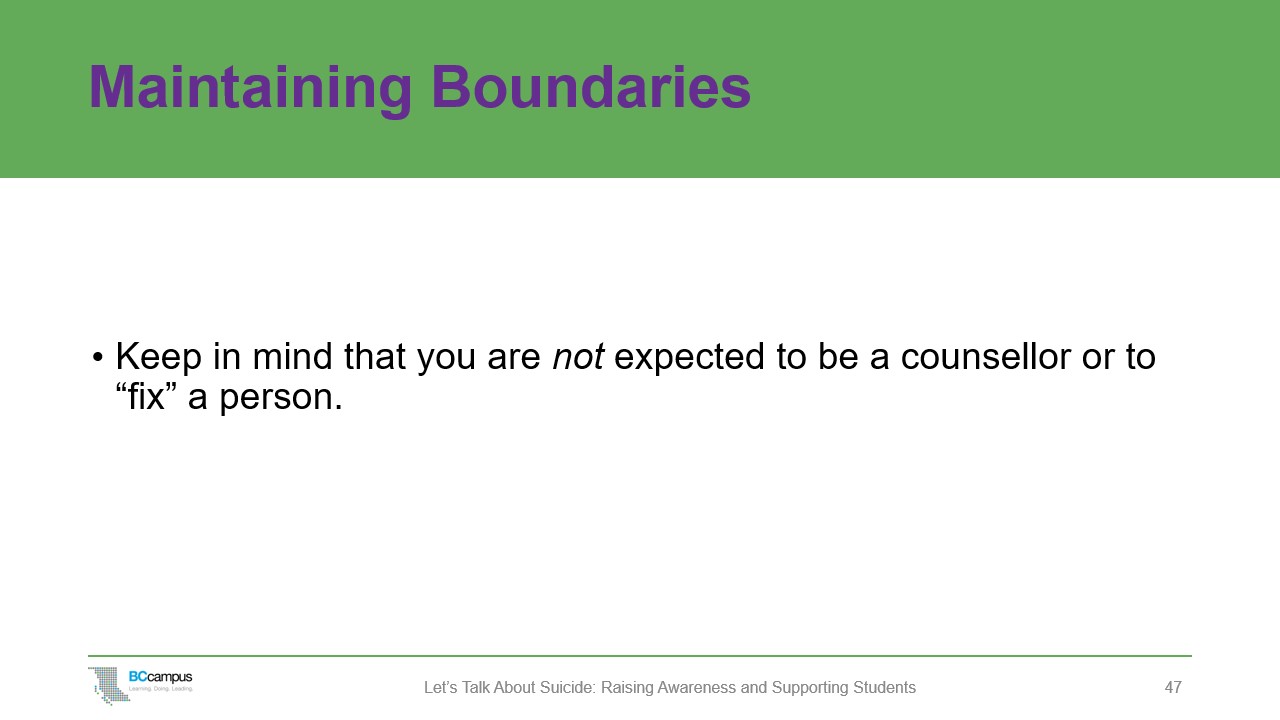
When helping students, it is important to remember to maintain your own boundaries. Recognize what you can and can’t do, given the limitations of your role, and be clear with others. Refer students as appropriate and access your own support when needed. While you can be an empathetic listener and help connect a student to the proper resources, you are never expected to take on the role of a counsellor or to “fix” a person. There are services and supports to help a student at risk of suicide.
To conclude your conversation, let the student know you are glad they came to talk to you. You could say:
-
- “I’m glad you told me…”
- “I can’t do that, but I can do this….”
- “I’m happy you chose to talk to me, and we need to talk about a transition plan because I’m not a counsellor. I’m struggling here because this is out of my depth. The best way I know how to deal with this is to talk to a counsellor.”
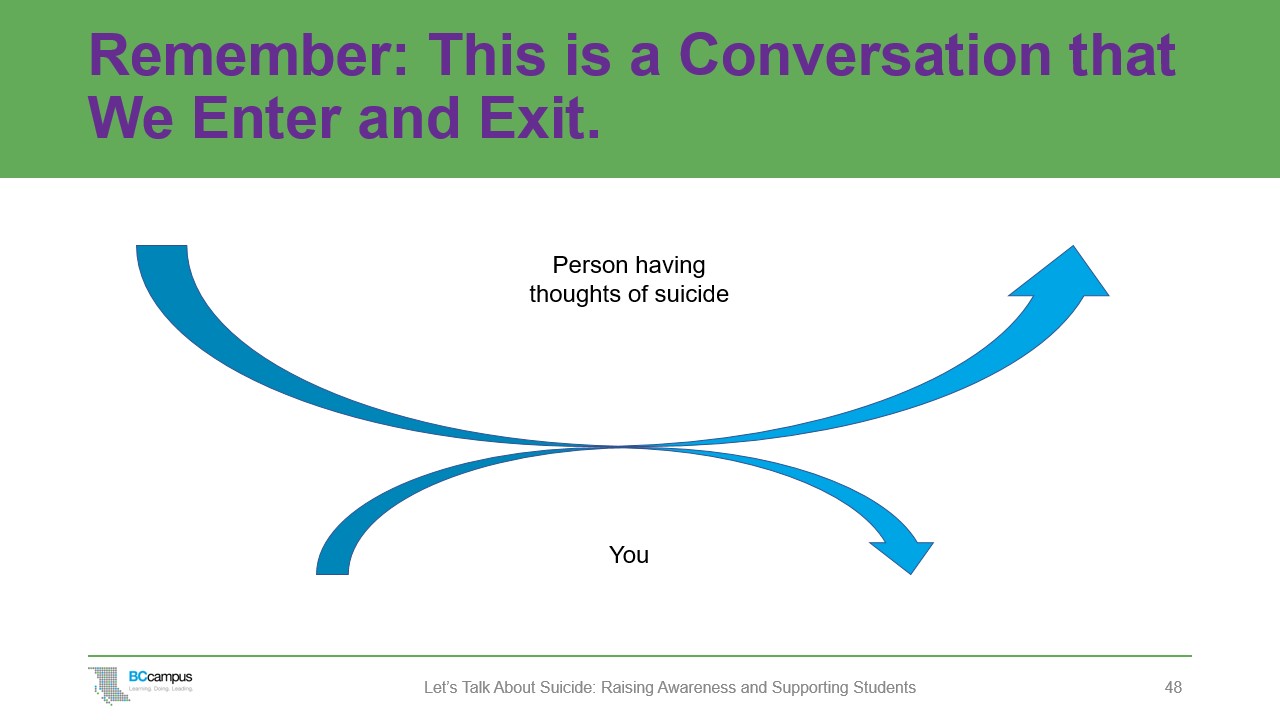
Remember that there’s an entry and an exit to the conversation. The conversation does not have to be a long one. By listening and referring a student to a counsellor you could be making a big difference to the person who needs to know someone hears them.
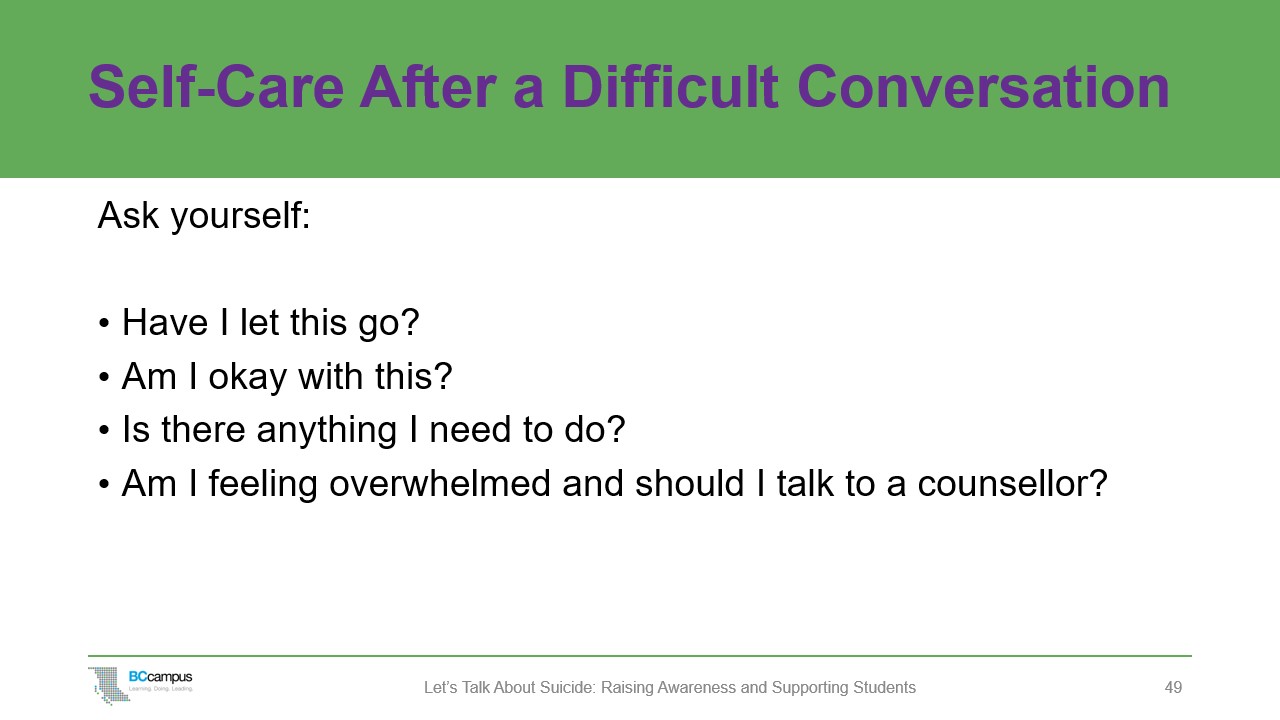
Talking about suicide can be emotionally draining, and we need to take care of ourselves. After a difficult conversation, ask yourself:
- Have I let this go?
- Am I okay with this?
- Is there anything I need to do?
- Am I feeling overwhelmed and should I talk to a counsellor? You can reach out to counselling services at your campus or call one of the crisis lines. Counsellors or staff who answer the crisis lines are available to talk to anyone supporting another person who is suicidal.
Tell yourself: “I have done everything I can for this student.”
Know your limits and ask for help if you feel overwhelmed; you are not responsible for solving the person’s problems on your own.
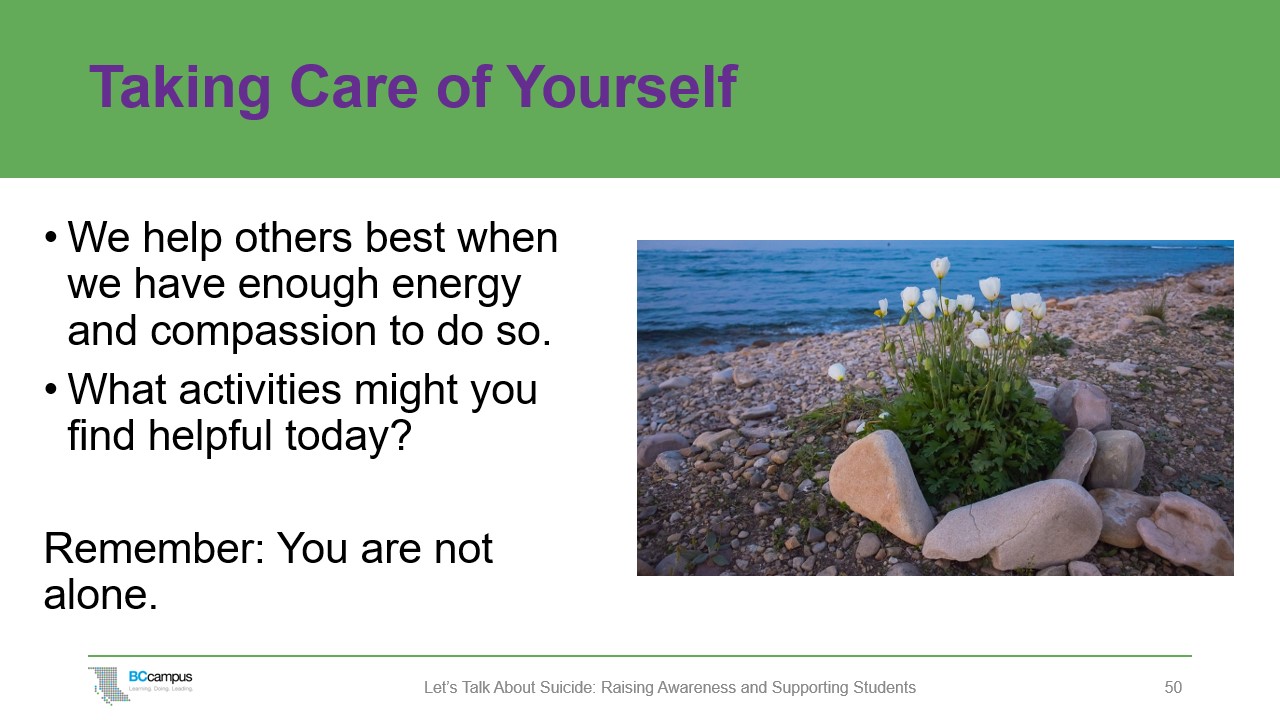
It’s also important to make time to take care of yourself after the session. It may be helpful to talk to a colleague or friend to debrief, or you may want to do something fun or relaxing to recharge. Think about what activities might you find helpful to try after the session.
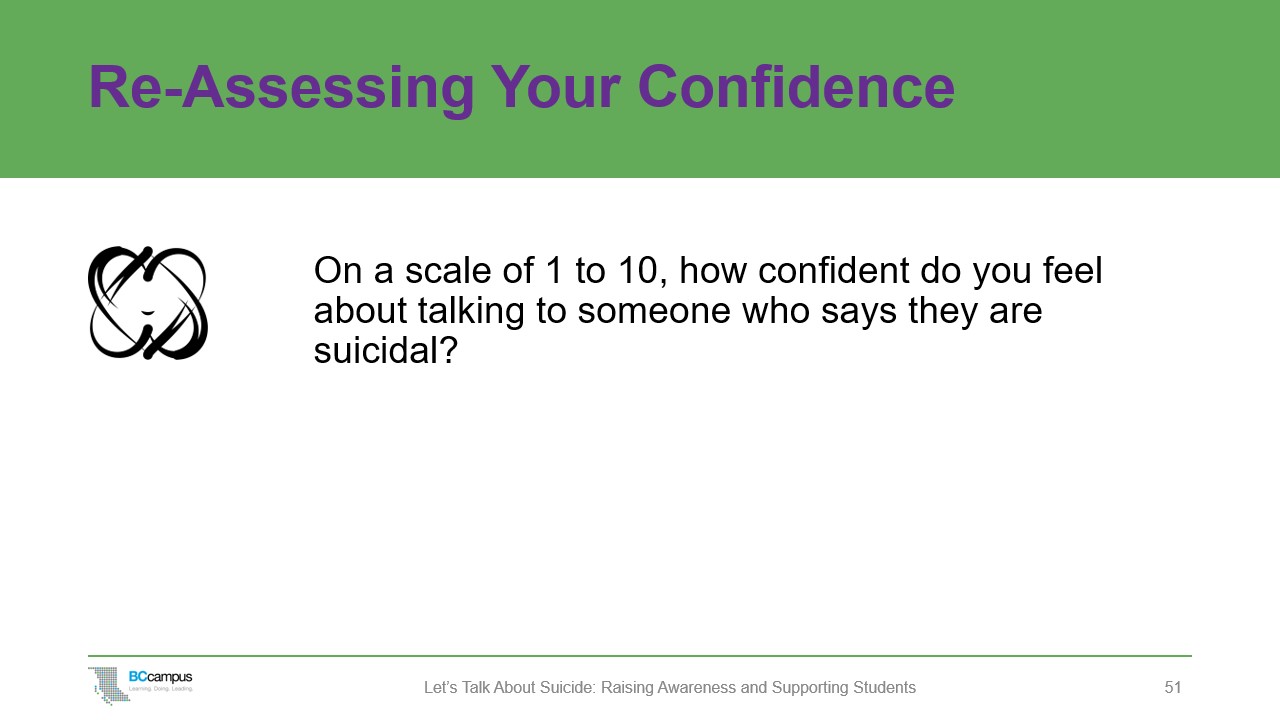
Closing the Session
REFLECTION: How Confident Do You Feel?
Now that everyone has completed the session, ask the participants to take a moment to reflect again on how confident they feel about talking to someone who says they are feeling suicidal. Ask them to rate themselves on a scale from 1 to 10 (1 being very little confidence and 10 being very confident). Tell them that this is information that is meant only for them and they will not be asked to share it.
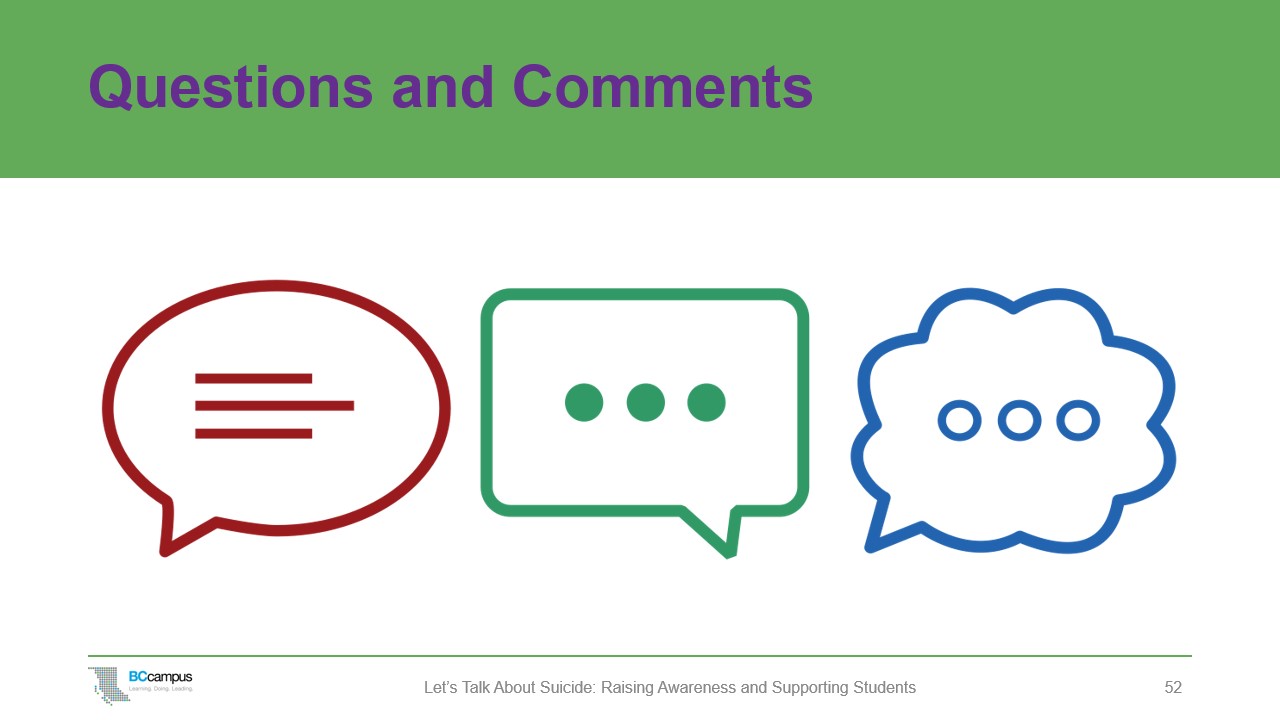
To end the session on a positive note, ask participants to share what they found most valuable in the session. Ask if anyone has any questions or comments, and let participants know that you’ll be available after the session if anyone has any questions or would like to talk about anything covered in the session.
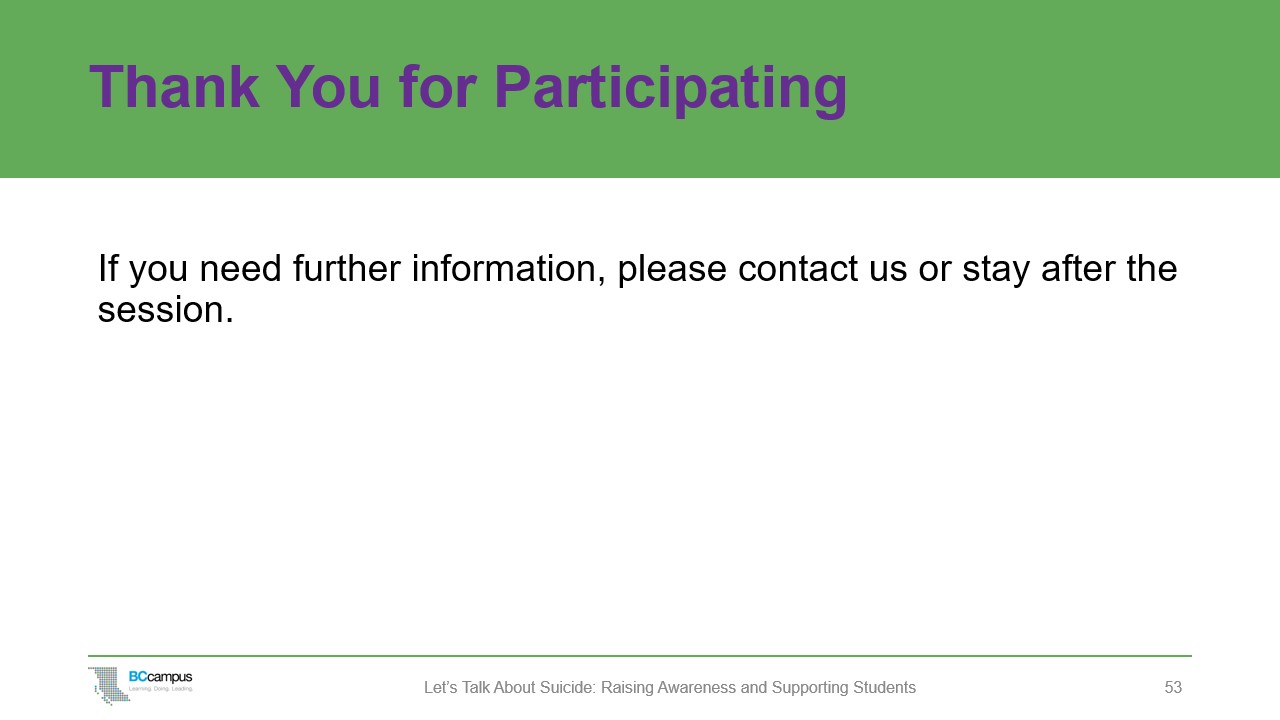
After the Session: A Note for Facilitators
Presenting a session on suicide can be emotionally exhausting. Taking time after a session to debrief is important.
If you have co-facilitated the session, take some time to talk about what happened during the session so you can then let go and move on. If you have facilitated the session on your own, consider talking to a colleague or friend to debrief.
Here are some debriefing questions you may want to ask yourself after you’ve completed a session.
- What was a positive moment or success in this session?
- How did the learners engage with the different activities? Are there activities or discussions that I would change for next time?
- Did I or a learner seem to have a response to the material, a shared story or another learner that was challenging? If so, how was it responded to or resolved?
- Is there something I want to do differently next time? Is there something that would be helpful for me to learn about or check with a co-worker about?
If you feel overwhelmed by anything from the session, talk to a counsellor on your campus. Provincial crisis lines or employee assistance lines can be used as a resource for anyone who needs to talk about their experiences.
Text Attributions
- This chapter was adapted from Let’s Talk: A Workshop on Suicide Intervention by Dawn Schell, University of Victoria.
Media Attributions
- Slide 50: Flowers and the beach by Andrey_and_Lesya is licensed under a CC0 license.
- Slide 52: reflections of heart by Álvaro Bueno, ES from the Noun Project is licensed under a CC BY 4.0 license.
- Slide 53. Diversity speech bubble icons by Louise Wigö is licensed under a CC0 license.

